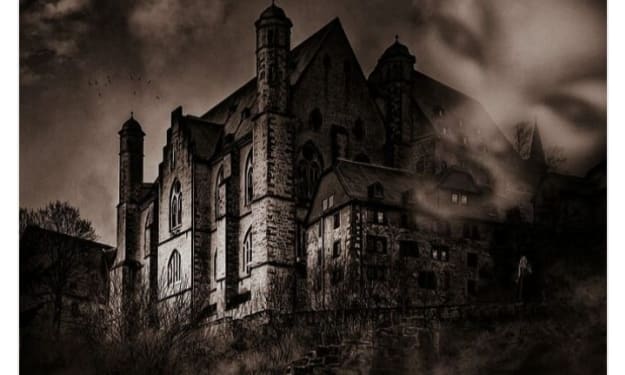Rabindranath Tagore
Indian Bengali writer who won the Nobel Prize in Literature

Rabindranath Tagore FRAS (7 May 1861 – 7 August 1941; 25 Baishakh 1268 – 22 Shravan 1348 Bengal)[1] was a Bengali poet, novelist, composer, playwright, painter, short story writer, essayist, actor, vocalist and philosopher.[2] He is considered the greatest literary man in the Bengali language. [3] Rabindranath was awarded the titles of "Gurudev", "Kabiguru" and "World Poet".Short story writer, essayist, actor, singer and philosopher.[2] He is considered the greatest literary man of Bengali language.[3] Rabindranath was awarded the titles of "Gurudev", "Poet Guru" and "World Poet".[4] Rabindranath's 52 poetry books,[ 5] 38 plays,[6] 13 novels[7] and 36 essays and other prose collections[8] were published during his lifetime or shortly after his death. A total of 95 of his short stories[9] and 1915 songs[10] have been included in collections of stories and hymns respectively.All published and unpublished works of Rabindranath have been published in 32 volumes as Rabindra Rachnavali. [11] All of Rabindranath's literature is published in nineteen volumes of letters and four separate books. [12] In addition, he painted about two thousand pictures. [13] Rabindranath's works have been translated into various languages of the world. has been In 1913, he won the first Asian Nobel Prize in Literature for his English trans
relatives
Tagore Family
The characteristics of Rabindranath's poetic literature are depth of feeling, lyricism, imagery, spiritual consciousness, love of tradition, love of nature, love of humanity, love of country, love of the world, romantic sense of beauty, diversity of expression, language, rhythm and expression, realism and progressiveness. [28] Rabindranath's prose language is also poetic. [29] India's classical and mundane Culture and Western scientific consciousness and philosophy of art had a profound influence on his works. [30] Through fiction and essays, he wrote about society,He expressed his views on politics and state policy. [31] He expressed his opinion in favor o f rural development and educating the poor people in the villages as a means of social welfare. 33] In Rabindranath's philosophy, the human world is specified as the root of God; Rabindranath advocated the worship of Karma, i.e., God, instead of Devavigraha.[34]He considered music and dance to be an essential part of education.[35] Rabindranath's song is one of his greatest achievements.[36] His two songs Jalaman-Adhinayak Jai Hey and Amar Sonar Bangla are considered the national anthems of the Republic of India and the People's Republic of Bangladesh respectively.[37] Sri Lanka's national anthem was inspired and written by Sri Lanka Mata Rabindranath Tagore.[38][39][40][41][42]
These are: Bau-Thakurani's Hat (1883), Rajarshi (1887), Eyeballs (1903), Boat Drowning (1906), Prajapati's Nirbandha (1908),
Rabindranath Tagore, 1903
Rabindranath was awarded the titles of "Gurudev", "Kabiguru" and "World Poet". Rabindranath's 52 poems, 38 plays, 13 novels and 36 essays and other prose collections were published during his lifetime or shortly after his death. A total of 95 of his short stories and 1915 songs have been included in collections of stories and hymns respectively.
Novel publication date details
Karuna 1877-1878 (1961) is Rabindranath's first novel. However, it was not published in a bibliography during his lifetime. It was serially published in 'Bharti' from 1877-1878 AD. 'Karuna' was first published in 1961 in Rabindra Rachnavali published by the West Bengal Government. As it is not finished it does not get the full status of a novel (unfinished novel). Apart from this, Rabindranath wrote a total of thirteen novels.
Bau-Thakurani's Hut 1883 Rabindranath's first published novel. A historical novel based on the dispute between king Pratapaditya of Jessore and zamindar Ramachandra of Bakla. In 1316 Bangabd, Rabindranath's Prayaschitta play was composed based on Bau-Thakurani's haat. The Atonement was rewritten in 1336 Bengal and printed as Paritran.
Rajarshi 1887 is a historical novel written on the history of the royal family of Tripura. In 1297 Bangabd, the play Bisarjan was composed based on the first part of this novel.
Eyeballs 1903 Social-psychological novel. One of Rabindranath's best novels. In 2003, Rituparna Ghosh made the film Ekse Bali based on this novel.
Shipwreck 1906 Social novel. 1310-11 Bangabd was published in Bangadarsan Patrika.
Communication 1929 Social-psychological novel. Bichitra was published serially in monthly periodicals (Ashwin, 1334 - Chaitra, 1335). When published in the newspaper, the name was Three-Purush.
The Last Poem is a 1929 romantic-psychological poetic novel. One of Rabindranath's best novels.
drama
A scene from the Valmiki-Pratibha drama, on a mural in a Durga Puja mandap in Calcutta
Rabindranath Tagore was both a playwright and a dramatist. [154] At the age of sixteen, Rabindranath played the title role in Jyotirindranath Tagore's play Sudden Nawab (based on Moliere's La Bourgeois Jantirom) [155] and later in Jyotirindranath's own play Alikbabu at the family stage of Jorasanko Tagorebari.[15] 4] In 1881 his first ballad Valmikipratibha was staged Yes. [154][156] In this play, he played the role of Rishi Valmiki. [154][156] In 1882, Rabindranath wrote another ballad called Kalamrigaya, based on the epic of the Ramayana. [154][156] During the staging of this play, he played the role of Andhamuni. acted.[154][156]
After the ballads, Rabindranath wrote a number of poetic dramas.[154][156] His Raja and Queen (1889) in the Shakespearean pentagram style.[157] And Bisarjan (1890)[158] was performed on the general stage many times and he himself acted in these plays.[154] In 1889 Rabindranath played the role of Vikramdev in the play Raja O Rani.[154] He staged the play Bisarjan on two separate occasions.[154] ] The young Rabindranath played the role of the old Raghupati in the 1890 production and the old Rabindranath played the role of the young Jaisingh in the 1923 production. [154] Two other notable plays by Rabindranath in the kavyatya parva areChitrangada (1892)[159] and Malini (1896).[154][160]
After poetry and drama, Rabindranath concentrated on writing farce. [154] In this period, Gogay Galad (1892), Baikunther Khata (1897), Hasyakautuk (1907) and Bangakautuk (1907) were published. [154] Rabindranath played the role of Kedar in the play Baikunther Khata.[154] 154] In 1926 he also adapted Prajapati's novel Nirbandha into a farcical drama called Chirkumar Sabha.[154][161]Rabindranath Tagore traveled the world twelve times in total.[108] Between 1878 and 1932 he visited more than thirty countries on five continents.[109] He visited England twice in his early life (in 1878 and 1890).[108] In 1912 for personal treatment. After going to England for the third time, Yeats read the English translation of the newly written Gitanjali poem to some English poets and intellectuals. [108] They were also impressed by the poems.[110] It was during this trip that Rabindranath met "Deenbandhu" Charles Friar Andrews. [111] In 1913, the Swedish Academy honored him with the Nobel Prize. [108] Rabindranath visited Japan and the United States in 1916-17 to discuss imperialism and Gave several speeches against radical nationalism.[112][113][114] These speeches were compiled in his book Nationalism (1917).[108][115] However, about nationalismRabindranath's adverse views were rejected during that visit to those two countries. [108] By 1920-21, the poet again visited Europe and the United States. [108] During this visit, he was well received in Western countries. [108] In 1924, Rabindranath visited China. [108] After that, the poet went to Japan from China and gave anti-nationalist speeches there. [108] At the end of 1924, on the way to the country at the invitation of the Peruvian government, the poet fell ill in Argentina and spent three months in the hospitality of Victoria Ocampo. [116]He postponed his trip to Peru due to health reasons. [117] Later, the governments of both Peru and Mexico provided US$1,00,000 to Visvabharati. [118] In 1926, Rabindranath visited Italy at the invitation of Benito Mussolini. [119] Initially, Mussolini hosted him. Although impressed, the poet criticized Mussolini's actions after learning of his dictatorship in public. This led to a break in friendly relations between the two. [120] Rabindranath then traveled to Greece, Turkey and Egypt.Political ideology and educational thought
Main article: Political ideology of Rabindranath Tagore
Therefore, he Rabindranath Tagore's influence on Bengali culture in the 20th century is very extensive. Nobel laureate economist and philosopher Amartya Sen has described Rabindranath as a "Himalayan figure" and a "deeply relevant and multidimensional contemporary philosopher".[187] Rabindra's oeuvre, published in thirty-two volumes, is considered a special treasure of Bengali literature. Rabindranath has also been described as "India's greatest poet of all time".Rabindranath Tagore's birth anniversary "Panchishe Baishakh" and death anniversary "Baise Shravan" are celebrated






Comments
There are no comments for this story
Be the first to respond and start the conversation.